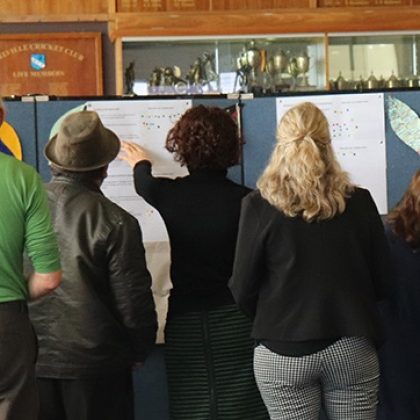Ricoeur on Truth in Religious Discourse: A Reclamation
Check out Patrick J. Casey’s article ‘Ricoeur on Truth in Religious Discourse: A Reclamation’ in Horizons’ latest publication, Volume 46, Issue 1
In this paper I take preliminary steps in exploring the philosophical underpinnings of interreligious learning. Under what conditions might a member of one religion come to see the religious resources of another as true? Historically, it has been thought that the only way to make sense of the possibility of such judgements is to abstract away from the concrete worldviews of individuals and to talk about a purported “view from nowhere” or “God’s-eye view” outside of any particular worldview, where one can make assessments about truth based on “objective evidence,” without relying on one’s own worldview or current beliefs.[1]
Otherwise, if the beliefs of one’s own worldview provide the resources for making determinations about truth, then one will always, at the result of an investigation, ultimately decide that one’s own worldview is the best one. Seeing the beliefs of another as true—that is, learning from them—would therefore be impossible. Or, if it is possible, it becomes a form of irrational conversion. Can one rationally change one’s mind about religious issues as a result of an encounter with the religious other, whether as the result of reading texts or through personal engagement? Is it possible to see truth in another’s religion?
Rather than abstracting away from the lived, comprehensive, and complex worldview of the religious believer in order to understand learning processes, my goal is to push further into what we might call the religious believer’s concrete mode of being. Increased contextualization, I believe, is the way forward for a flourishing religious epistemology. Better epistemology, I hope, will in turn produce more fruitful interreligious exchanges. I think that the groundwork for a philosophical account of interreligious learning can be found in the hermeneutics of Paul Ricoeur.
Ricoeur maintains that there is a cognitive element in religious belief—that is, Ricoeur thinks that religious belief has to do with truth. But for him, the pursuit of truth is not a matter of achieving a “God’s-eye view” that is symptomatic of the more pernicious claims to truth historically found in interreligious encounters. Ricoeur allows us to reclaim a view of truth grounded in existential concern: one encounters difficulties in one’s own life or worldview and one reaches out to others for other and potentially better ways of thinking and living.
[1] See William James, “The Will to Believe,” in The Will to Believe and Other Essays in Popular Philosophy (New York: Dover, 1956), 1–31, especially sections 5 and 6.
Patrick J. Casey, Saint Joseph’s University






